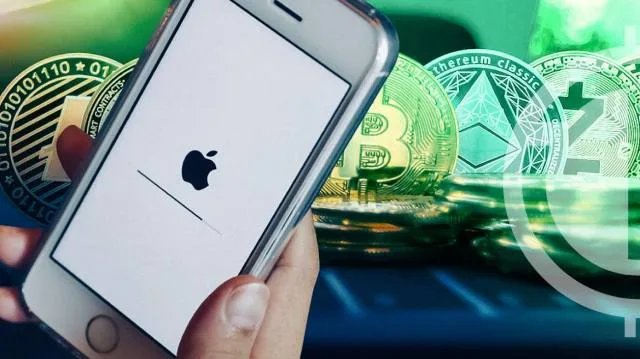Apple, Google Remove Huione Apps Amid $24B Cyberscam Scandal

- Developers can now guide users to outside sites for payments like NFTs and crypto.
- Apple can no longer stop certain apps from using outside links in the US Store.
- NFT apps may now handle full sales inside the app without sending users elsewhere.
Apple has updated its U.S. App Store policies after a federal court ruled it violated a 2021 antitrust injunction related to Epic Games. Developers can now include links in iOS apps directing users to external payment methods, including those supporting NFTs and cryptocurrency. Previously, Apple restricted such actions and charged a 30% fee for all in-app transactions.
On April 30, U.S. District Judge Yvonne Gonzalez Rogers ruled that Apple had “willfully” violated the original injunction. The court criticized Apple for maintaining anti-competitive practices that blocked fair developer access to alternative payment systems. “Apple’s continued attempts to interfere with competition will not be tolerated,” said Judge Rogers in the court order.
Developers Gain New Rights Over Payment Options
Developers can now steer users toward third-party sites for digital purchases—including NFTs and crypto—without paying Apple’s 27% commission. The ruling bars Apple from preventing app makers from designing or positioning external payment links in their U.S. iOS apps. Apple also cannot selectively block specific categories of apps or developers from offering such links.
This marks a rollback of Apple’s tightly controlled ecosystem. Developers may now integrate alternative payment services directly into their apps for iPhone and iPad. According to Variety, this enables mobile crypto wallets to collect digital assets like USDC, ETH, and SOL straight from app users. There is no longer a need for third-party browsers or middlemen. Fortnite, the app at the center of the Epic Games dispute, is now returning to the U.S. App Store.
Expanded Capabilities for NFT and Crypto Apps
The change impacts how NFT platforms operate on iOS. Previously, users had to exit apps to finalize NFT purchases on the web. Now, developers can embed full NFT marketplace functions directly inside their apps, allowing complete transactions in-app. This eliminates the need to redirect users to mobile browsers. Still, limitations persist. NFTs cannot be used to unlock in-app content.
Apple strictly prohibits the usage of cryptocurrency mining systems together with reward-based token systems. iOS applications cannot be used by Apple to execute Initial Coin Offerings (ICOs) under the company’s policies. The updated court decision has not eliminated these constraints from Apple. Crypto industry leaders responded quickly. The modified guidelines received approval from multiple parties, while people found fault with Apple’s approach to wording. Ariel Michaeli, CEO of Appfigures, said some developers may find Apple’s “passive-aggressive language confusing.”
Related: Apple, Google Remove Huione Apps Amid $24B Cyberscam Scandal
Apple’s Appeal and Industry Implications
Apple confirmed that it will comply with the court order, although it plans to appeal the decision. For now, these changes apply only to the U.S. App Store. Google’s Play Store already allows NFTs to unlock features and requires developers to disclose blockchain experiences. Apple still maintains tighter restrictions in comparison.
The legal change occurred because of increasing regulatory pressure to protect app marketplace competition. Through blockchain technology, developers obtain more control over their earnings in the mobile industry. The decision enables more possibilities for mobile integration of digital assets. Apple’s policy change creates a fundamental inquiry about upcoming developments in blockchain technology usage by mobile applications.





